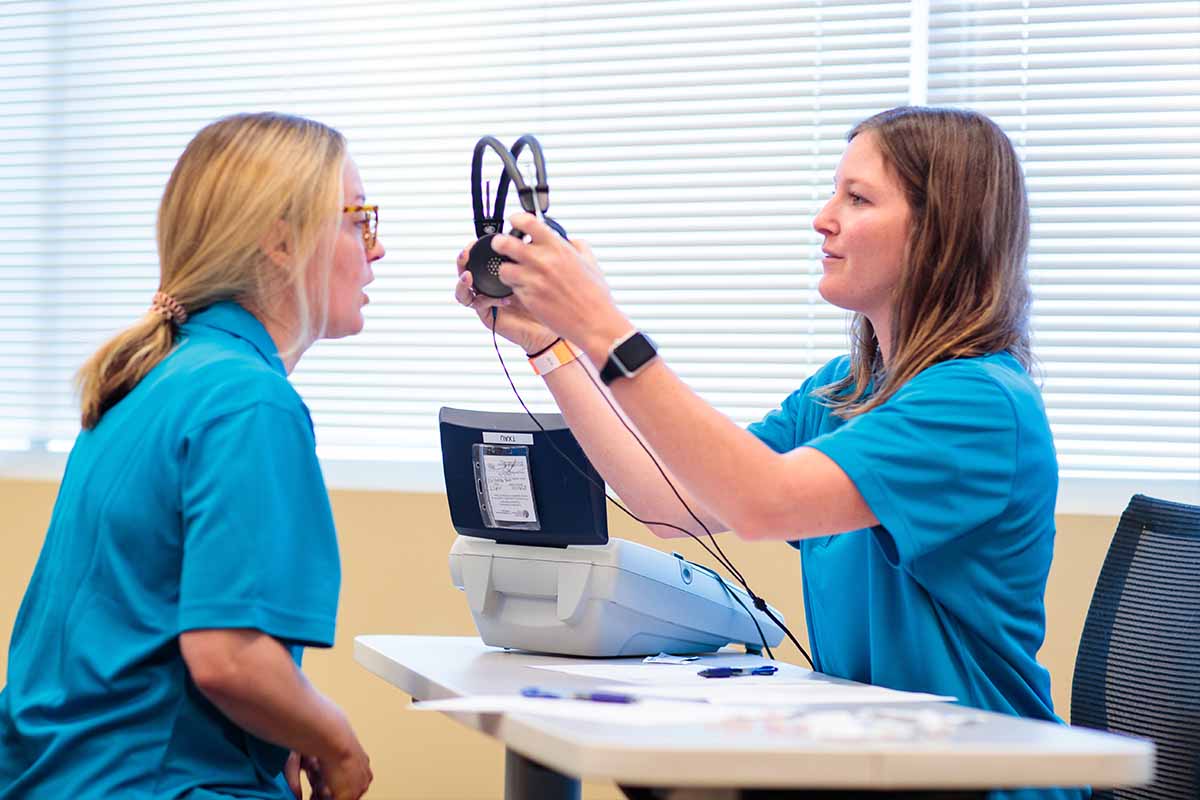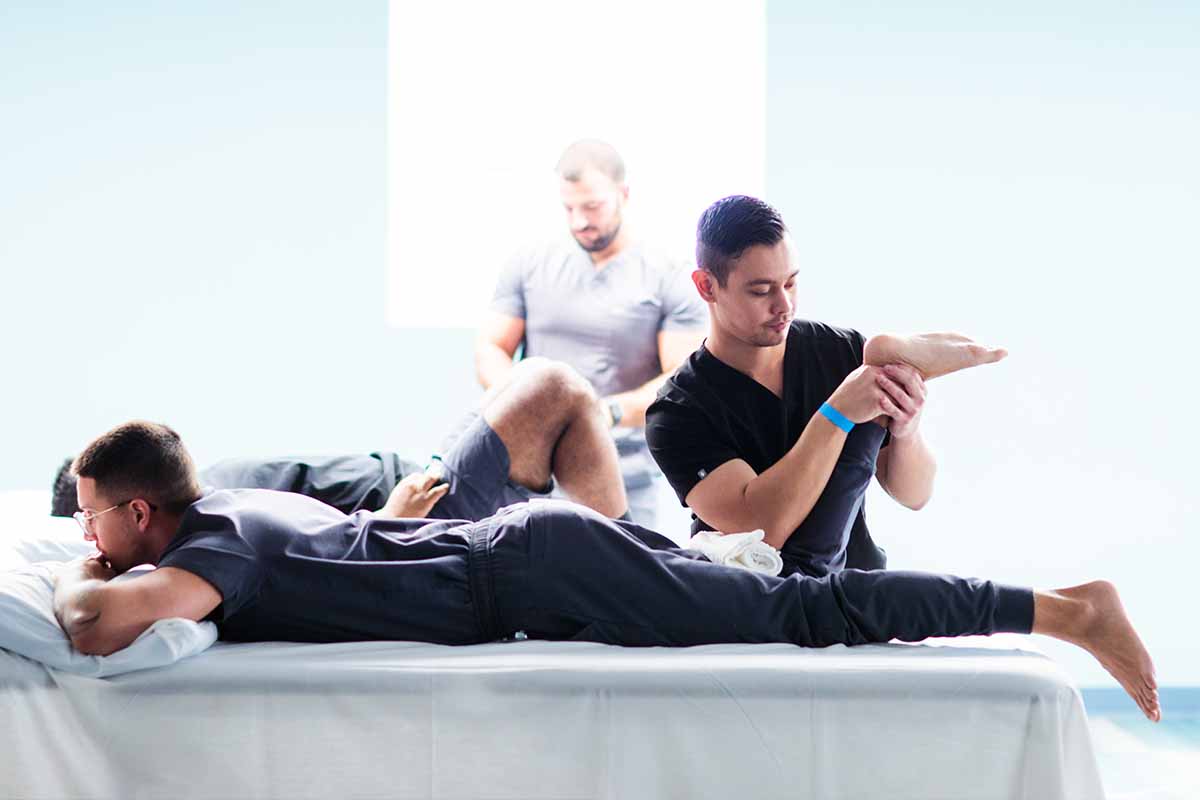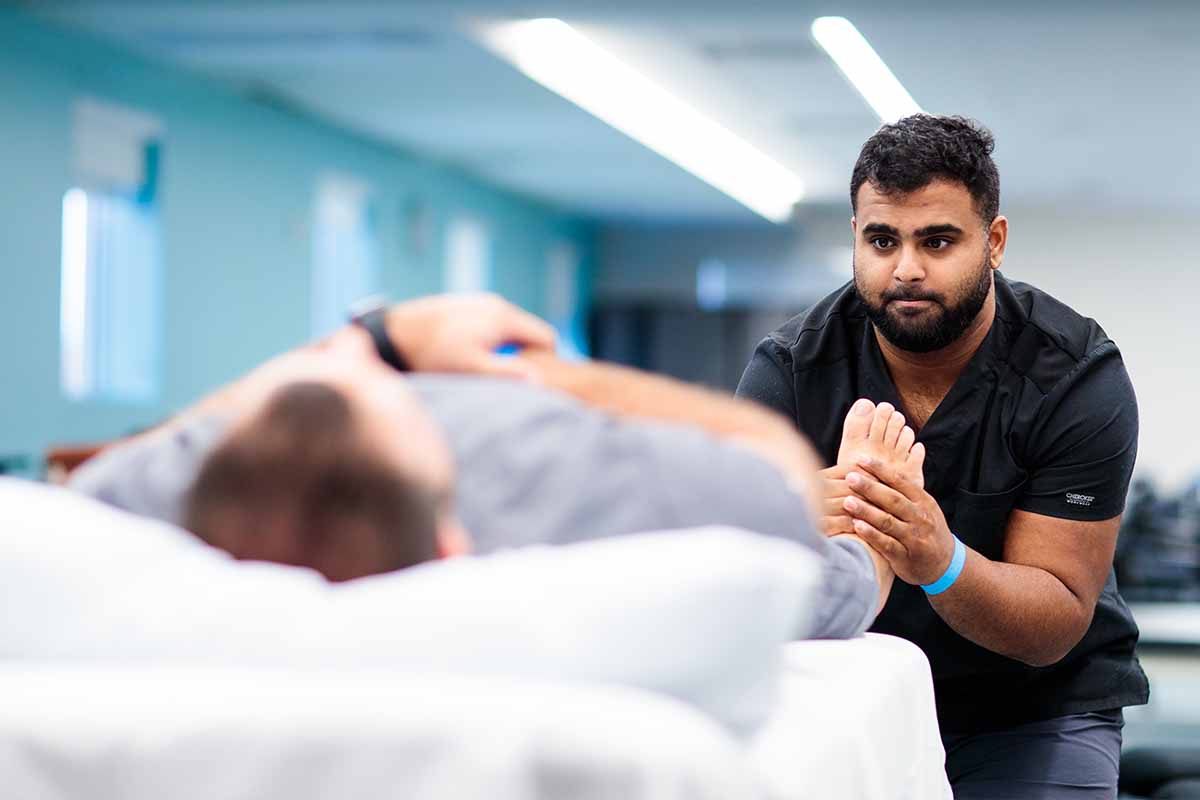Alli Yingling (MOT ’19) on her graduation day.
As an undergraduate at the University of North Carolina at Chapel Hill, Alli Yingling (MOT ’19) fell in love with occupational therapy (OT). Working toward a psychology degree, she interned at a large pediatrics clinic that employed physical therapists, occupational therapists and speech-language pathologists.
“After spending time with the owner, who was an OT, I decided I liked the philosophy behind occupational therapy,” she says. “I also enjoyed seeing the confidence build in the kids I was working with and watching them blossom and come out of their shells.”
Upon graduation, she made a bet with her father on getting admitted to the OT program at the University of St. Augustine for Health Sciences. “It took several rounds of applications, and there were a lot of necessary prerequisite classes, but I made it in 2017! This was the year UNC won the national basketball championship, which I took as a sign,” she declares.
Yet, her USAHS student journey and fieldwork assignments were not a slam dunk. She first interned in Georgia at an acute care and rehab medical facility, followed by another public school-based experience in Florida, where she assessed student need for school-based OT services.
“My experience was not what I was expecting, and it took a while to understand the subject matter and hone skills I had learned in class,” says Yingling. “I knew I didn’t want to do the type of work I was doing in my fieldwork but instead find something with home health with children. With the pandemic, this was especially difficult. I moved to Georgia to an OT clinic for 1.5 years, but I was barely getting by.”
At this point Yingling decided to reach out for help. She had noticed on the usa.edu website information about USAHS’ new student/alumni geographic mentorship program and thought she’d try it. After six months in the program, Yingling says she was able to take steps on her own to make course corrections and move her career in the right direction.
“I was the only OT at the outpatient clinic, so there was really no one to go to with questions. That’s when having a mentor became really important,” she says.
“My mentor, Paige, was continuously available to me for consultation on technique/strategy. Just talking it through with someone allowed me to advance my practice by helping me stay focused on providing evidence-based strategies.”
Yingling says that her mentor introduced her to resources such as STAR Institute, which she uses to deepen her understanding of sensory processing, and that she is challenged with interesting cases that her mentor shares from her own practice. “When I started as an independent contractor, Paige was available to help me with planning for required equipment, which has given me the confidence I need going forward for running my own clinic one day,” states Yingling. “The obstacle I am proudest of overcoming was building my caseload and setting up my therapy room. It was intimidating having to plan my own therapy space as the sole OT. Providing my own supplies has taught me what clinic items do and do not actually get used in treatment, and I know what to expect in terms of budget for setting up a therapy space.”


Yingling is now a pediatric occupational therapist at Children’s Therapy Group in Lawrenceville, GA. Passionate about pediatric occupational therapy, she’s excited about the use of play to build skills for a living.
Another benefit about her USAHS experience: Alli Yingling met her fiancé, Steven, during her second term at USAHS at her college roommate’s wedding! With her own wedding planned for this spring, Yingling’s USAHS roommate will be by her side as a bridesmaid.
Make a Difference— Mentor USAHS Students!
Alumni are needed to help mentor USAHS students. There are many ways that alumni can assist students as they prepare for their careers as healthcare professionals. Just a few are:
- Join the USAHS Upnotch Community and be available to students looking for a mentor.
- Serve as a Geographic Mentor to a student heading out on a clinical or fieldwork rotation in an area they are unfamiliar with (but is familiar to you). Emails are sent to alumni located in a requested area.
- Serve as a Clinical Instructor in the workplace (to learn more, email clinedsa@usa.edu.)
Mentoring can take many forms—some students are looking for quick answers to a few questions, some students are looking for a longer-term mentorship relationship that can help them build their professional network. Sharing your experience can make a real difference to a student who is just starting out. Contact alumni@usa.edu or visit www.usa.edu/about/alumni/news-and-benefits/ to learn more.










